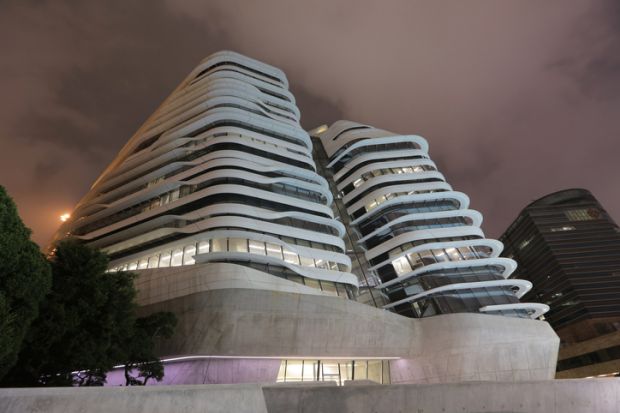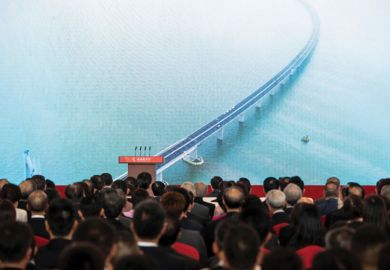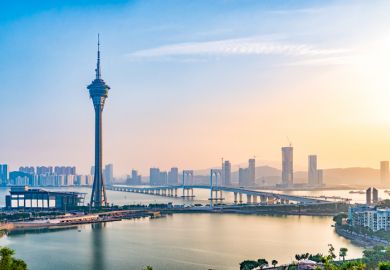As countries worldwide cut higher education budgets, Hong Kong is going in the opposite direction by using financial incentives to boost higher education.
Hong Kong’s leader, Carrie Lam, announced in her annual policy address on 25 November at least HK$2.1 billion (£202 million) in funding for hiring science, technology, engineering and mathematics (STEM) researchers, creating job opportunities for new graduates, and boosting “ArtTech” education.
A global STEM professorship scheme will be funded to the tune of HK$2 billion (£193 million) over the next five years.
“Some university presidents told me that quite a number of outstanding R&D talents working overseas are interested in coming to work in Asia…and that Hong Kong should seize this opportunity to attract more I&T [innovation and technology] talents,” she said.
Jin-Guang Teng, president of Hong Kong Polytechnic University, said he found it “encouraging that the research capabilities of local universities were recognised in the policy address” and that the new schemes were “significant to the future development of higher education in Hong Kong”.
The new professorships, in particular, would “help encourage overseas talent to come to work in Hong Kong”.
“The world has now entered the era of the fourth industrial revolution, and future I&T development will focus on emerging technologies such as life sciences, materials science, data science, artificial intelligence and robotics,” he said.
Ms Lam’s speech clearly focused on science and technology, as opposed to the humanities or liberal arts. Much new funding is also contingent on cooperation with mainland China, a relationship the government has been trying to foster among students, new graduates and scholars, some of whom are sceptical about crossing the border.
A youth employment scheme will provide 2,000 state-sponsored jobs, but only for recent graduates willing to move to the mainland. Another scheme, which will provide HK$100 million in funding for 200 youth start-ups, is linked to “co-working bases” on the mainland.
Institutions themselves seem eager to expand across the border, with at least four Hong Kong universities now building extension campuses there.
Ms Lam said that the government would “support and assist various universities in Hong Kong in their plans to provide education services in the GBA”, referring to the Greater Bay Area, a state project to create a Silicon Valley-like tech hub that encompasses southern China, Macao and Hong Kong.
An additional HK$1 billion will be invested in the fine arts and sport. Of particular interest was “ArtTech”, which includes design education and video game development. The Hong Kong Academy for Performing Arts, the only higher education performing arts institution in the city, also got a funding boost.
Roland Chin, president of Hong Kong Baptist University, said that these measures “could create opportunities for students in creative and art related programmes, and for teaching and research staff and alumni to demonstrate their professional strengths”.
Register to continue
Why register?
- Registration is free and only takes a moment
- Once registered, you can read 3 articles a month
- Sign up for our newsletter
Subscribe
Or subscribe for unlimited access to:
- Unlimited access to news, views, insights & reviews
- Digital editions
- Digital access to THE’s university and college rankings analysis
Already registered or a current subscriber? Login










